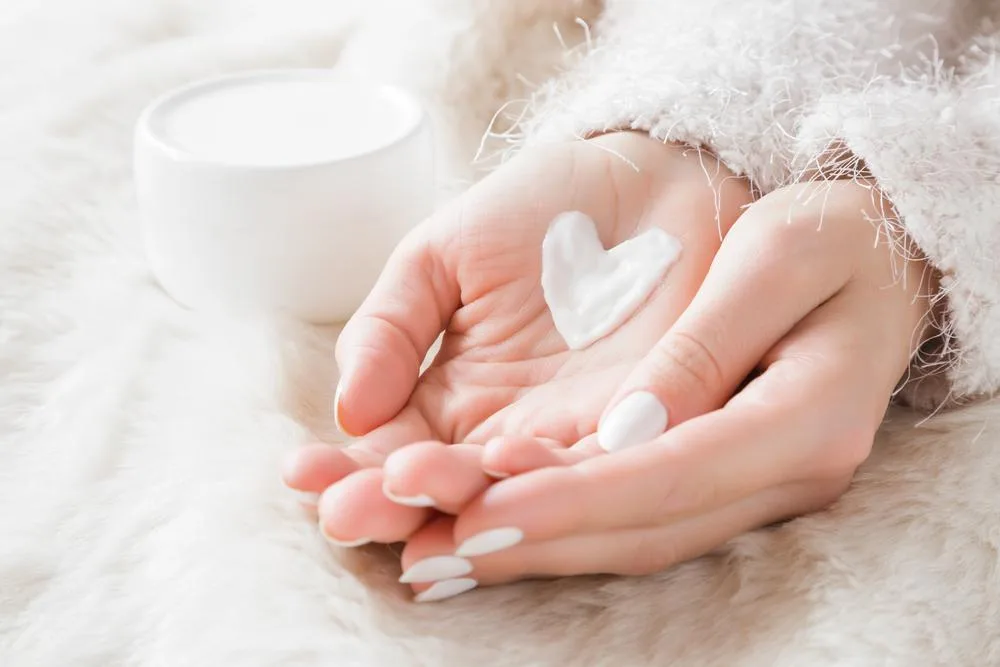These days, it seems like we hear the word “self-care” just about every day. Usually, it’s accompanied by advice on how to slice the perfect cucumber rounds for an at-home facial or make your own bubble bath for a healing soak in the tub. Don’t get us wrong, these are amazing tools to have in your self-care toolkit — and you should employ them as often as possible — but there’s more to the story when it comes to self-care. From making changes to your diet to cutting out toxic relationships, we’re here to help you take self-care beyond the face mask.
What Is Self-Care?
Let’s start with the basics. What is self-care, exactly? According to the International Self-Care Foundation (yes, that exists), self-care is defined as “what people do for themselves to establish and maintain health, and to prevent and deal with illness.” The organization goes on to define it as practices encompassing hygiene, nutrition lifestyle, environmental factors, socio-economic factors and self-medication. To put it simply, self-care is what you do for yourself to improve your physical and mental health.
You Are What You Eat: Following the Self-Care Diet
Your diet should be a big part of your self-care routine. After all, it’s one of the primary things that affect the way you feel each and every day. To improve your diet and, in turn, your self-care, you need to formulate a custom diet that helps you feel as good as humanly possible. This means getting rid of foods that make you feel sick, bloated, tired, or guilty.

George Rudy/Shutterstock
Eliminate trigger foods
If you suffer from gastronomic discomfort or irritable bowel syndrome (IBS), you need to work on coming up with an IBS diet plan that helps you figure out what’s triggering your issues. Many people find success with a low-FODMAP meal plan or elimination diets.
Learn to cook and set goals
Cooking is one of the best ways to enhance self-care because it allows you to fully control what goes into your food, resulting in better health. It also leads to a boost in self-esteem. Set a goal for yourself to cook at home at least half the time to help minimize dining out, which sometimes leads to guilt and triggers stomach discomfort.
Let food be a stress relief, not a stressor
Let’s not forget that cooking and dining can be a great stress management tool as well! Find ways to turn cooking into an activity of stress relief, whether it means hosting a dinner party or spending your Sunday baking something elaborate.
Stress Management: Finding Healthy Ways to Blow Off Steam
Finding healthy ways to handle stress throughout your daily life can drastically improve your self-esteem, relationships, and physical well-being. The goal should be to replace poor stress management tactics — overeating, binge drinking, not getting out of bed for the entire weekend — with more productive ones. All the while, remember to not be hard on yourself if you’re not always successful!
Blow off steam
By that, we mean you should have a little fun! There is simply no replacement for an afternoon of mindless enjoyment, whether it be with friends at brunch, the movies, the arcade, or playing a couple of hours of video games throughout the week. Simply spending time with friends at home is powerful enough to boost your self-esteem and make you feel happy.
Set boundaries within your relationships

Sanja_85/Shutterstock.com
This one is tough for a lot of people, but remember that you are entitled to your own space and time. If you need quiet time alone to recharge throughout the week, do not feel obligated to attend events or answer your phone! Healthy boundaries with family and friends can make you feel less zapped and overwhelmed, which means they are an essential part of your overall self-care strategy.
Carve out time to play some games
Who says playing games isn’t good for your mental health? Playing sports, board games or video games is a proven way to release stress and feel happier. In fact, contrary to what many people think, there have even been some studies linking video gaming to positive mental health. The key, of course, is to play in moderation.
Talk to someone
Try to remember that talking about your feelings and working out emotions is foundational to a good self-care routine, in part because it helps you release stress and experience feelings of support. Whether it’s chatting with friends or an online therapist, putting it all on the table is always a good thing.
Look Good, Feel Good: Beauty and Hygiene for Self-Care
Although it may sound shallow, the truth is that when you feel good about the way you look, you feel good about everything else in your life. That’s because looking good makes you feel empowered and leads to stronger feelings of self-confidence.
Eat for good skin health
When it comes to self-care for the skin, face masks are just the tip of the iceberg. Try to think about how what you eat might be impacting your complexion. While the old adages about pizza grease and chocolate are probably true, there are some surprising foodstuffs (bread, popcorn, cupcakes, alcohol, spicy stuff) that may be causing breakouts.
Focus on small physical improvements
In today’s society, it’s so easy to get caught up in the massive (and massively expensive) world of cosmetic enhancements, but often, it’s the minor things that really go the furthest. Whitening your teeth, getting a fresh haircut, and wearing nice, clean clothes can make as big of an impact as Botox, veneers, or fillers!
Forge your own sense of style
It’s important that you choose a style — clothing, makeup, home décor, etc. — that accurately represents you and what you’re all about. This will help you create a life where you feel comfortable and will even help satisfy your inner creativity. In other words, don’t aim to be someone you’re not, especially when it comes to your appearance!
If you really want to create a meaningful, positive impact on your self-care, you’ll need to look inward and focus on ways to enhance your lifestyle. It’s not just about soaking in the tub or throwing on a face mask, though those things are great, too. It’s also about looking at the bigger picture and creating a healthy lifestyle that sets you up for happiness and success!



![women [longevity live]](https://longevitylive.com/wp-content/uploads/2020/01/photo-of-women-walking-down-the-street-1116984-100x100.jpg)










